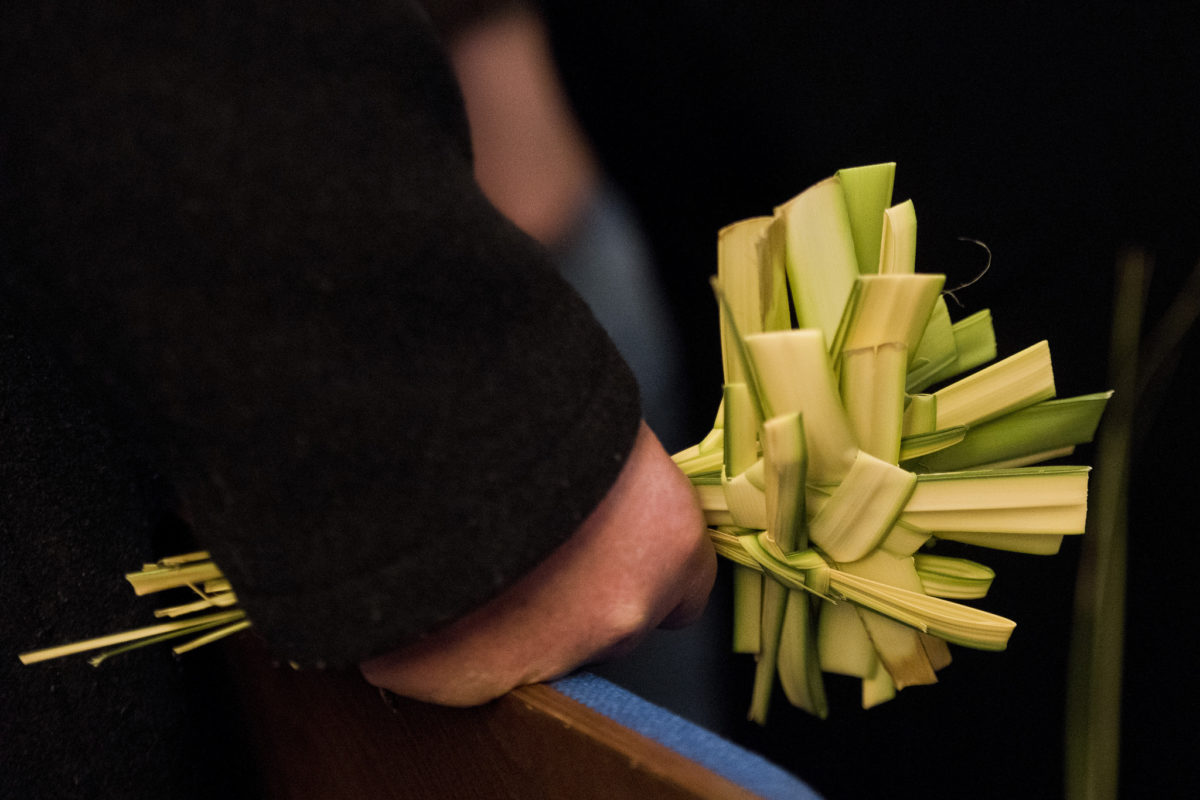Palm/Passion Sunday takes me back to my trips to the Holy Land. One of the essential excursions on this pilgrimage is to walk the Palm Sunday road, the route Jesus took from the top of the Mount of Olives into the city of Jerusalem. And for Passion Sunday, it’s the Via Dolorosa. It’s rather impossible to summarize the experience of either. Nor should we.
The same is true for how to preach the Palm/Passion passages. This is the primary homiletical challenge. You can’t reduce Palm/Passion Sunday to a convenient or conventional summary. As it should be. We are talking about the death of God, after all. Summary is not an option.
So, what does a working preacher do?
Put yourself there. Make it personal. What do you see? What verse stands out? What scene strikes you? Moves you? Challenges you? Convicts you? Be a witness. Watch. Wonder. Then testify to what you experienced.
Our preaching these days could use a little less talk and a little more testimony. We tend toward too much homiletical lecture and not enough proclamatory observation. There’s a lot of preaching out there that thinks a sermon is simply a synopsis of what the preacher learned about the text, what the preacher believes about the text. But that’s not preaching — that’s report. And it implies a certain insider expertise that only the preacher has — and by the way, too bad you don’t.
Biblical illiteracy is not just a lack of knowledge about the Bible, for which, more often than not, the blame gets placed on the people in the pews — they don’t come to church enough. They don’t attend Bible studies anymore. They don’t read their Bibles. Bible illiteracy also includes a lack of knowledge about ways of reading the Bible.
For too long, our preaching has perpetuated that Bible proficiency will only be found in the hands of the few — the trained, the studied, the tested, the graduated. Preachers need to take responsibility for biblical illiteracy. If preaching is information alone, we suggest that the preacher is the holder of that knowledge. But if preaching is more first person narrative, it will indicate that an encounter with the text is as valuable and important as the study of it.
When we make our preaching a little more personal, perhaps our parishioners will better be able to locate themselves in the biblical stories. By personal, I do not mean more stories or what the text means to you. By personal, I mean writing a sermon from your experience of the story and not what you think about the story.
There is a difference and that difference is ever so important on a Sunday like Palm/Passion Sunday. If our preaching communicates that a story like this is easily condensed, we risk communicating that Jesus’ story itself can be abridged to accessible and understandable digests. However, Jesus does not save with précises but through his presence in our lives and the promises that that presence creates.
We get nervous when there’s talk about preaching and the personal. After all, the sermon is not about us, but about God. That is true. But, if you can’t specify how the text affected you, changed you, reoriented you, saved you, influenced you, don’t expect the people in your pews to anticipate anything like that happening to them when they read the Bible. If you can’t offer your own witness, don’t imagine people miraculously being able to either.
We are living in a time when solidarity in the face of tyranny, resistance in the midst of oppression, and truth-telling to stave off ignorance are not only essential civic duties but acts of faith. Testimony is the rhetorical stance required when injustice has become an operating principle. Testimony counteracts hypocrisy. It names that which has been swept under the proverbial rug far too long. It shatters pretense and privilege. It decries demagoguery. It calls out dishonesty. It challenges monocracy.
More than ever, we need to empower people to read the biblical texts and give witness to what they have seen and know. We need to embolden our parishioners to speak out and speak up when they see the Bible being used in ways it was never meant to be. We need to encourage our congregations to trust that their encounters with the living God are just as valuable as those whose voices seem louder. We need to enable the faithful to call out decisions and executive orders and behaviors that do not line up with the God they have encountered. We need to endow our people with power for proclamation, to pronounce loudly and boldly their own Palm/Passion Sunday witness.
A different sort of take on Palm/Passion Sunday, I know. Not what to preach, but how to preach. But my hope is that the act of witness can be carried forward into the days that come. That sometimes witness is the only response possible and is worthy of trust. And my hope is that what will be experienced in that upper room, on that hill called Golgotha, and on that night of keeping vigil, will somehow, some way lead to the most powerful witness of all, “I have seen the Lord.”
Karoline

